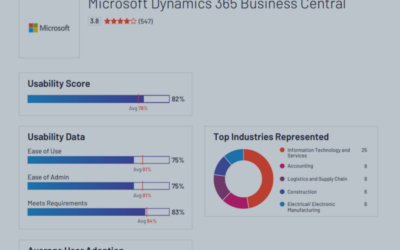We’re almost two decades into the millennium; any forward-thinking business leader is either ready to make a transition to cloud software or is already in the process of doing so. Cloud Computing makes it easier and safer to do work in our online world and lets businesses make better use of the information they collect. However, no transition is free of challenges and potential pitfalls that companies may trip into if not taken into proper consideration. In today’s blog, Intelligent Technologies would like to share some great advice on what common situations business leaders should be mindful of to avoid issues down the line.
Avoid Assumptions
A common pitfall when making the transition to cloud software is assuming that everything will work the same way it did with on-premise software and that integrations with both hardware and applications won’t be an issue. A transition to the cloud is NOT simply a software upgrade like downloading and installing the latest version of a web browser. Minimum and optimal requirements in areas such as local network mapping, backup, and connectivity need to be taken into consideration. Rushing into a transition without proper assessment and planning can result in chaotic scenarios, risking information loss and collapse of day-to-day operations. The last thing you want to do is try to “play it by ear” when it comes to data migration.
Besides avoiding negative consequences, proper planning and strategizing will allow an organization to reap the most benefit from its transition to a cloud-based environment. Taking the proper steps to integrate existing information from your CRM and ERP into the new system will make it a highly-valuable asset for analytics; using it in combination with cloud functionalities such as business intelligence apps can provide game-changing insights for a company. Additionally, the correct integration of your CRM information is an absolute must to avoid any downtime for the Sales team.
The best way to make a planned, strategic transition is to work in conjunction with a cloud software expert who can properly guide your data management and the configuration of your app landscape for the cloud environment. Whether it’s full support and management of cloud resources or consultation services, this help can ensure your organization takes maximum advantage of the migration.
Avoid Forced Changes
A migration to a cloud environment represents change, both in business processes and how a company’s personnel interacts with the new applications. Implementing a cloud migration without giving your staff the proper resources to learn how to work within the new environment can cause a strong resistance to change as well as frequent mistakes while using the new tools. Business processes and workflow are very likely to change after the transition and making sure your team is ready to assimilate the changes is key to a successful migration.
Always make sure your team is properly trained and provide them with the necessary learning resources they need to ease into the transition. Make sure every member understands the process, which changes are being made, and when they are happening. This will soften the learning curve and avoid having to hire new and specialized personnel.
It’s also important to keep in mind that the migration to the cloud will affect the way you interact with both your customers and your business partners. Every aspect of how communication and business interaction is handled with them must be considered and all necessary information should be provided to make them aware of the changes.
Security First
Besides risking information loss or theft, security is also a matter of legal compliance when transitioning to the cloud. Since it is likely that you will use a third-party service to implement the migration, it’s necessary to make sure that your solutions provider understands both your internal security guidelines as well as industry compliance standards. Most companies handle personal information that can result in serious legal problems if mishandled; identify theft is one of the most common cybercrimes today and a non-secure migration process can make it easier for information to be stolen. Industry compliance requirements are in place to make information exchange safer for both your customers and your company.
It’s also important to establish a disaster management and recovery plan with your cloud solutions provider. Find a proper backup redundancy plan to make sure that information loss is minimal to null in the event of disaster or system failure.
Make sure your cloud migration has the support of an experienced solutions partner like Intelligent Technologies. Learn more about common mistakes you’ll want to avoid from companies who’ve already been there. Read the whitepaper, “7 Pitfalls to Avoid as You Transition to the Cloud.”
Still hungry for more? You can find more on cloud software here. You can also follow us on Twitter and Facebook for news and information on the Cloud!




